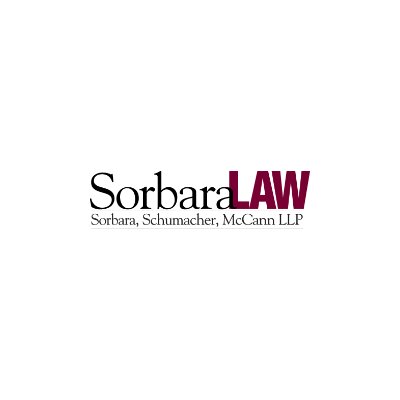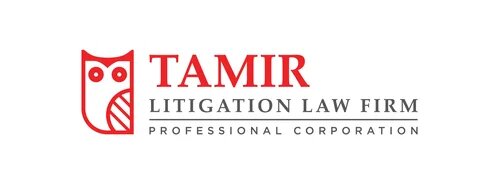Best Class Action Lawyers in Canada
Share your needs with us, get contacted by law firms.
Free. Takes 2 min.
Or refine your search by selecting a city:
List of the best lawyers in Canada
Canada Class Action Legal Articles
Browse our 2 legal articles about Class Action in Canada written by expert lawyers.
- Class Action Rights for Consumer Privacy Breaches in Canada
- Most consumer privacy class actions in Canada operate on an opt-out basis, meaning you are automatically included if you meet the class definition. You do not need to pay out-of-pocket legal fees to participate; lawyers are typically paid a percentage of the final settlement or court award. Certification is the... Read more →
- How to Join or Opt-Out of Canada Privacy Breach Class Actions
- Most Canadian provinces operate on an "opt-out" basis, meaning you are automatically included in a class action if you meet the criteria and live in the province where the case was filed. You do not pay any upfront legal fees to participate; lawyers are paid a percentage of the settlement... Read more →
About Class Action Law in Canada
Class action law in Canada allows groups of people to collectively bring a claim against a defendant through one or more representative plaintiffs. This legal mechanism is designed to improve access to justice, increase judicial efficiency, and provide a means to hold corporations and other entities accountable, especially when individual claims might be impractical to litigate individually due to cost or logistical reasons. In Canada, class actions can cover a wide range of issues, including consumer protection, environmental claims, securities fraud, and product liability.
Why You May Need a Lawyer
There are several situations where individuals might require legal assistance related to class actions, including:
- Being part of a group that has suffered a common harm or loss due to the actions of a corporation or another large entity and needing to join or initiate a class action lawsuit.
- Receiving a notice that you are a potential class member in a class action and needing to understand your rights, responsibilities, and potential benefits.
- Representing a business or organization facing a class action lawsuit and needing legal defense.
- Wanting to propose a settlement or understand the implications of a proposed settlement in a class action case.
- Seeking advice on the implications of a pending or current class action judgment.
Local Laws Overview
Class actions in Canada are primarily governed by provincial and territorial legislation, which can vary, but generally, these laws include:
- The need for a court to certify the class action, ensuring that it meets specific criteria such as identifiable class members, common issues, and a preferable resolution method.
- Rules regarding the notice to class members about the lawsuit and any settlements reached.
- The requirement for representative plaintiffs to adequately and fairly represent the interests of the entire class.
- Provisions for lawyers' fees to be approved by the court to ensure they are fair and reasonable.
Frequently Asked Questions
What is a class action lawsuit?
A class action lawsuit allows one or more representative plaintiffs to sue on behalf of a larger group of people who have suffered a similar harm. This method is designed to enhance the efficiency of the legal process and facilitate access to justice.
How do I know if I am part of a class action?
Potential class members are typically informed through a notification process that may include direct mail, emails, or public notices, as mandated by the court overseeing the class action.
What are the benefits of joining a class action?
Joining a class action can lead to resolving claims more efficiently and cost-effectively, as it pools resources and shares legal costs among a large group of people. It can also lead to enforced settlements for widespread harm when individual lawsuits might not be viable.
Can I opt-out of a class action?
Yes, potential class members are usually given the opportunity to opt-out of a class action, preserving their right to pursue individual legal action. The opt-out process and deadlines will be specified in the notice provided to potential class members.
What types of cases can become class actions?
Class actions in Canada often involve issues like product liability, securities fraud, environmental disasters, consumer fraud, and employment disputes.
How are settlements distributed in class actions?
Settlements are typically distributed based on the determination of the court, which approves a distribution plan. This plan outlines how funds will be allocated among class members, often in proportion to the individual harm suffered.
Who pays for the legal fees in a class action?
The court must approve legal fees in a class action. Typically, fees are contingent upon the success of the action and are a percentage of the settlement or judgment awarded.
Do class actions always go to trial?
No, many class actions are settled before going to trial. Settlements can provide a quicker resolution and certain outcome for all parties involved.
What can I do if I disagree with a class action settlement?
Class members are usually allowed to object to a settlement at a court approval hearing, providing an opportunity to express their concerns before the court approves the settlement.
How long does a class action lawsuit take?
The duration of class actions can vary significantly depending on the complexity of the case, the number of parties involved, and whether the case is settled or goes to trial. It may take several years to resolve a class action lawsuit.
Additional Resources
For those seeking more information or assistance, the following resources might be helpful:
- The Law Society of the respective Canadian province or territory can provide referrals to practicing lawyers with experience in class action litigation.
- Legal aid services in Canada can offer advice and representation to individuals who qualify for assistance.
- The Canadian Bar Association provides resources and articles relating to various aspects of class action law.
Next Steps
If you need legal assistance in relation to a class action, consider taking the following steps:
- Consult with a lawyer experienced in class action litigation. They can provide professional advice tailored to your situation and help you understand your options.
- Gather all relevant information related to your potential involvement in a class action, including notices received, records of harm or loss, and any communications you may have had with involved parties.
- Consider contacting your local legal aid service if you cannot afford a lawyer, to explore options for receiving legal support.
Lawzana helps you find the best lawyers and law firms in Canada through a curated and pre-screened list of qualified legal professionals. Our platform offers rankings and detailed profiles of attorneys and law firms, allowing you to compare based on practice areas, including Class Action, experience, and client feedback.
Each profile includes a description of the firm's areas of practice, client reviews, team members and partners, year of establishment, spoken languages, office locations, contact information, social media presence, and any published articles or resources. Most firms on our platform speak English and are experienced in both local and international legal matters.
Get a quote from top-rated law firms in Canada — quickly, securely, and without unnecessary hassle.
Disclaimer:
The information provided on this page is for general informational purposes only and does not constitute legal advice. While we strive to ensure the accuracy and relevance of the content, legal information may change over time, and interpretations of the law can vary. You should always consult with a qualified legal professional for advice specific to your situation.
We disclaim all liability for actions taken or not taken based on the content of this page. If you believe any information is incorrect or outdated, please contact us, and we will review and update it where appropriate.
Browse class action law firms by city in Canada
Refine your search by selecting a city.















